- Discover the Planet Orion
- Expand, Trade, and Conquer
- The Everlasting Legacy
- A Glimpse into the Past
- Gameplay: A Turn-Based Galactic Adventure
- The Council of Races
- A Universe of Opportunity
- A Myriad of Worlds
- The Art of Colony Management
- The Cosmic Chessboard
- The Technology Race
- Ships of the Future
- Weapons of Mass Destruction
- Unleash Biological Warfare
- Bombing the Path to Victory
- Forge Alliances or Declare War
- The Pivotal Role of Espionage
- The Art of Invasion
- Play Master of Orion online
- Conclusion
Technological advancements, territorial expansion, and military conquests will define your path to dominance, but what sets this game apart is its sprawling, space-based setting.
Discover the Planet Orion
In the vast expanse of the galaxy, the planet Orion stands as a lush, fertile world with abundant mineral resources.
However, guarding this celestial gem is the formidable Guardian, a colossal spaceship that you must overcome to unlock Orion’s treasures.
Expand, Trade, and Conquer
Much like other iconic strategy games, Master of Orion requires you to expand your empire. Along the way, you’ll engage in trade, espionage, and even espionage to gain a competitive edge.
As your empire flourishes, your starships can be enhanced with upgrades such as improved engines, stronger shields, cloaking devices, and powerful weaponry.
Resource management is simplified with convenient sliders, reducing the need for excessive micromanagement.
The Everlasting Legacy
Often hailed as a sci-fi variant of the classic Civilization series, Master of Orion has transcended time to become a cherished classic within the realm of sci-fi-themed 4X strategy games. The game’s enduring appeal has spawned several direct sequels, and numerous other titles have drawn inspiration from it.
However, whether these games truly capture the essence and gameplay of the original remains a topic of debate among players and reviewers.
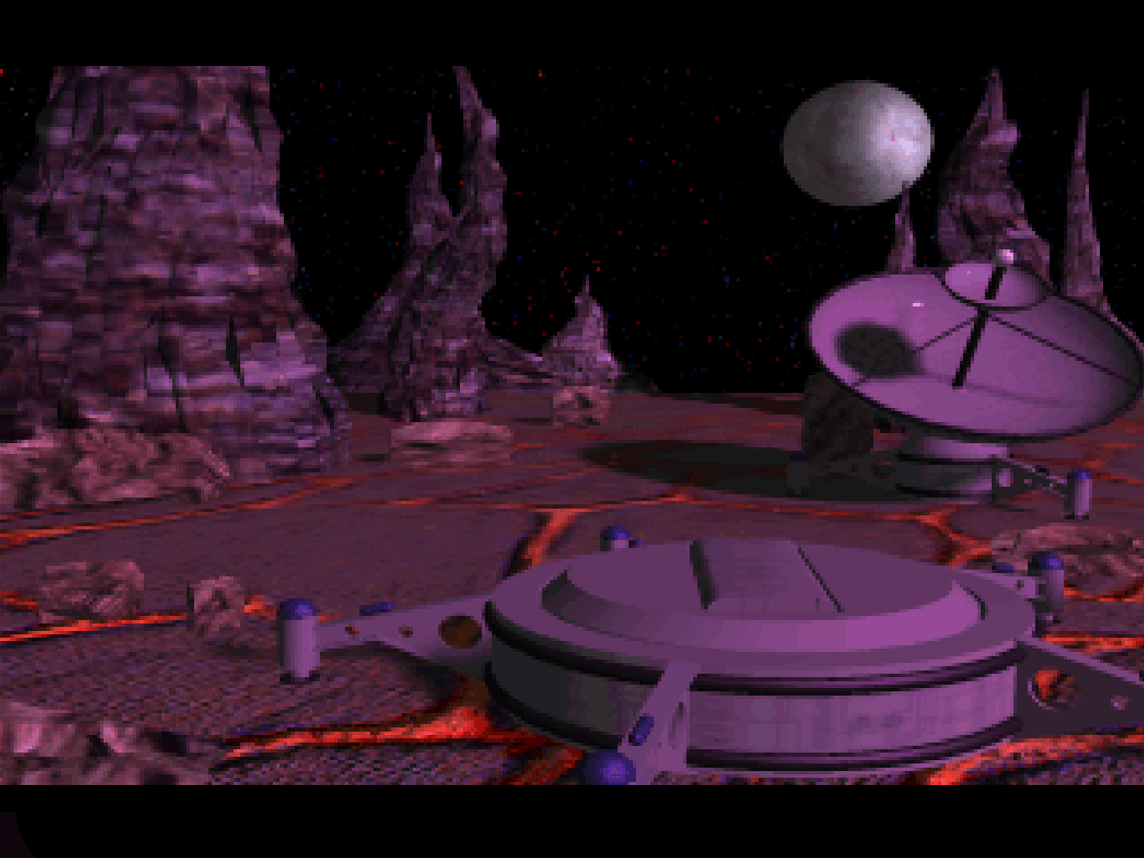
A Glimpse into the Past
Master of Orion first graced screens in 1993, courtesy of MicroProse on the MS-DOS platform. Later, it was adapted to the Mac OS in 1995 by Take-Two Interactive and published by GameTek.
This debut title in the franchise is now under the banner of Wargaming, preserving its legacy.
Gameplay: A Turn-Based Galactic Adventure
Master of Orion unfolds its strategic gameplay through a turn-based approach. The initial installment pits players against artificial intelligence (AI) opponents, encompassing the management of colonies, technology research, ship construction, inter-species diplomacy, and interstellar warfare.
The game generates a unique star map at the outset of each session, enabling players to select the galaxy’s size and the number and difficulty of AI adversaries. In the initial game, star systems typically feature just one colonizable planet, with a few exceptions.
Later versions introduced systems with more planets, offering a richer gaming experience.
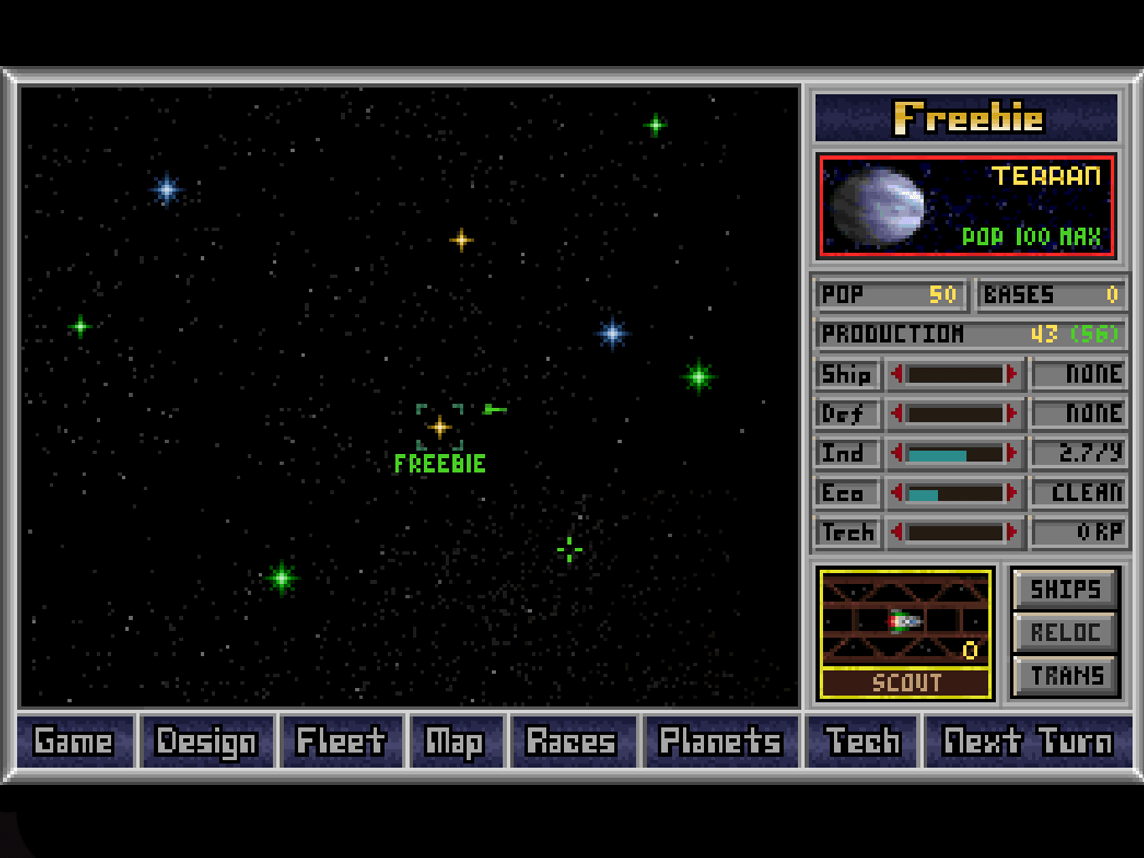
The Council of Races
Master of Orion boasts ten playable races, each endowed with distinct advantages.
For instance, the Humans excel in trade and diplomacy, the Bulrathi demonstrate their might in ground combat, and the Silicoids possess the unique ability to colonize even the harshest planets while disregarding pollution concerns.
A Universe of Opportunity
Players commence their journey with a single homeworld, a solitary colony ship, and two scout ships tasked with exploring nearby stars. Along the way, random events may prove advantageous or detrimental.
Yet, one celestial body holds the promise of extraordinary research—Orion, the “throne-world of the Ancients.” Victory hinges on either vanquishing all opponents or securing a vote for peaceful unification.
A Myriad of Worlds
As you traverse the galaxy, you’ll encounter a diverse array of planet types, ranging from habitable to hostile.
Hostile planets require advanced technology for colonization. The size of a planet determines its initial population capacity, while mineral wealth substantially influences a colony’s industrial output.
Habitable environments foster population growth, with hostile planets often harboring abundant mineral deposits. Artifact worlds house remnants of an advanced civilization, and with the right technologies, any planet can be upgraded to a Gaia-class paradise.
The Art of Colony Management
Managing colonies is a delicate balancing act. Sliders are employed to allocate a colony’s resources for ship construction, planetary defenses, factory development, ecology, and research. Population plays a pivotal role in generating production, particularly when supported by factories.
Limits exist on the number of factories a unit of population can efficiently operate, though building upgrades can expand these limits. Defense expenditure contributes to the construction of additional missile bases and planetary shields.
An essential aspect of colony management is ensuring that resources are efficiently allocated.
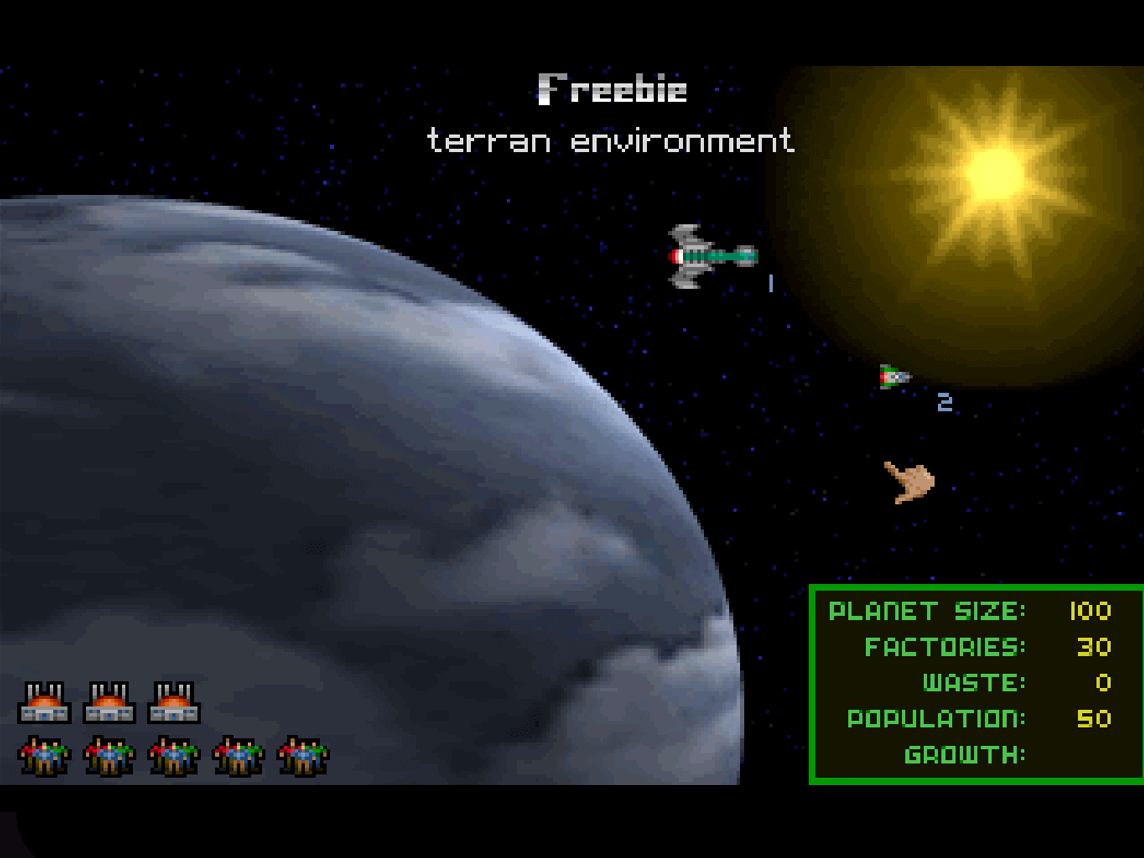
The Cosmic Chessboard
Ship movement within the Master of Orion universe is versatile, allowing vessels to travel to any star system within their range.
Combat unfolds in the orbit of planets, meaning that the interception of enemy ships in deep space is impossible.
Players can take control of space combat personally or entrust the software to resolve the battles automatically.
The Technology Race
In Master of Orion, technology reigns supreme. Your success as a player is directly tied to your advancements in various tech trees.
Funding can be funneled into six independent technology fields, which encompass Computers, Construction, Force Fields, Planetary Science, Vehicle Propulsion, and Weapons.
Miniaturization, a vital concept, decreases the size and cost of components when ships are built using a specific technology area.
Ships of the Future
Battles in the Master of Orion universe often hinge on numerical superiority and technological prowess.
Players have the liberty to design and employ their own spacecraft, with four different hull sizes offering trade-offs between maneuverability and durability.
Furthermore, eight component types serve various functions. The combination of these elements is vital in ship design, and your choices in this regard will shape your empire’s destiny.
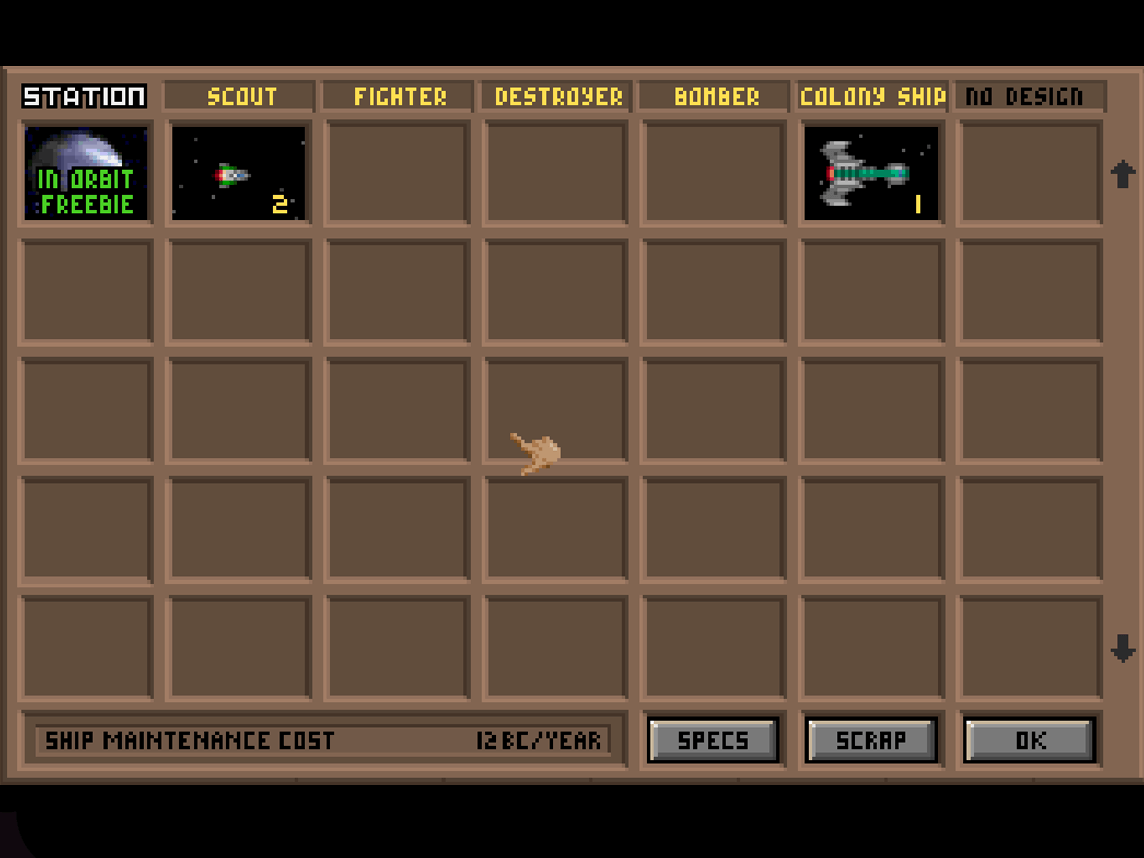
Weapons of Mass Destruction
Weapons play a pivotal role in both space and planetary combat. A diverse array of weapons can be mounted on ships or provided to ground units. These weapons vary in effects, costs, and the space they occupy.
Furthermore, special weapons represent a distinct category, offering unique capabilities and effects. Master the art of weaponry to achieve victory both in the cosmos and on planetary surfaces.
Unleash Biological Warfare
A subset of weapons, biological weapons, carries the power to reduce the maximum population of a targeted planet. However, these sinister arms can only be unleashed on enemy planets, not enemy ships.
Players must carefully weigh the consequences of deploying such weapons, as they can influence the future of colonization. In some instances, adversaries may choose to colonize a conquered planet, making careful consideration paramount.
Special antidotes, like the Biotoxin antidote and Universal antidote, can neutralize the effects of biological weapons to varying degrees.
Bombing the Path to Victory
Planetary assault plays a pivotal role in your quest for dominance. Bombs, a specific category of weapons, are engineered to target planets rather than enemy vessels.
While they excel in inflicting damage on colonies, bombs possess limited range and cannot be used against ships.
Strategic deployment of these weapons becomes crucial in scenarios where planetary control is the ultimate goal.
Forge Alliances or Declare War
Diplomacy in Master of Orion is a complex and dynamic affair. A wide spectrum of diplomatic negotiations is available, from exchanging money and technology to forming trade pacts that bolster industrial output.
Players can declare non-aggression and alliance treaties or resort to hostile actions when diplomacy falters. Remarkably, each AI player maintains a memory of past interactions, which shapes their future dealings.
Betraying past treaties can have a lasting impact on diplomatic relations.
Each race adheres to a distinct ruler personality and objective, influencing their approach to politics and economics. Understanding these traits is key to effective diplomacy.
The Pivotal Role of Espionage
Espionage is a potent tool in Master of Orion. Players can employ spies to incite revolts within enemy colonies and turn the population against their leaders. This covert method can serve as a valuable instrument of change in the interstellar landscape.
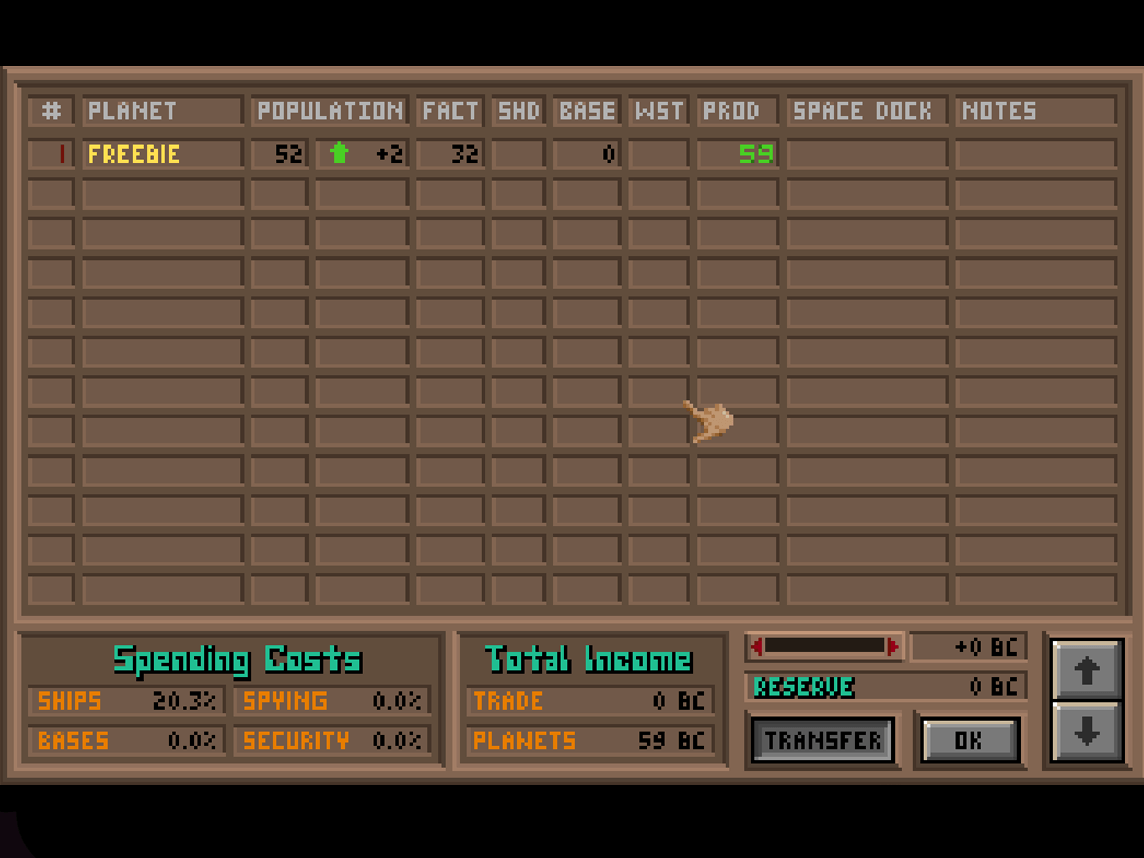
The Art of Invasion
Invasion is a high-stakes endeavor in Master of Orion. Ground invasions are made possible through enemy defenses. Invading forces must face enemy ships and missile bases, which may fire upon approaching transports, potentially inflicting losses.
The invasion process itself unfolds automatically, with the outcome dependent on factors such as numbers, technology, and race-specific ground combat advantages. Invasion can be an expensive affair, and in the original game, no specialized soldier units are used.
Instead, the existing population is called upon to fight, eradicate the previous inhabitants, and establish a new planetary population. Factories, if intact, can be evaluated for production capacity, and valuable technologies may be plundered if a sufficient number of factories survive the attack. Moreover, the successful conquest of a new system extends the range of the invader’s ships, amplifying the influence of their empire.
Play Master of Orion online
Now you can play Master of Orion online, directly in your web browser, for free!
Conclusion
Master of Orion is an excellent 4X turn-based strategy game, offering players an unparalleled experience in the realm of science fiction. As a player, you’ll explore uncharted galaxies, engage in epic interstellar conflicts, and chart your own path to greatness.

